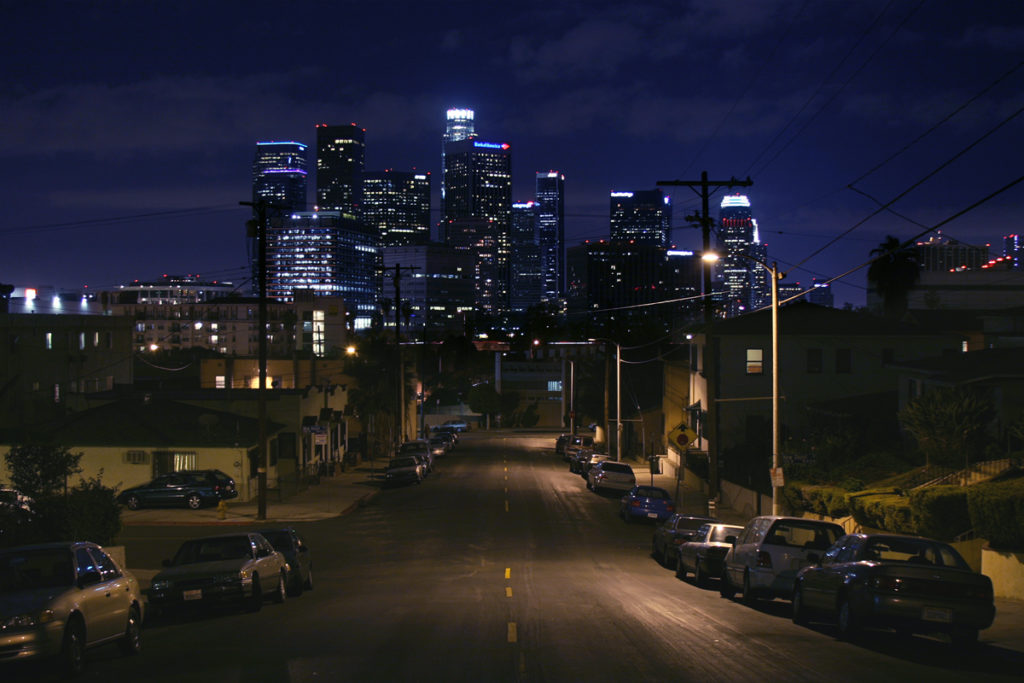LA’s Big Step toward Building Electrification
Los Angeles is about to require that new buildings be electric, but there’s a bigger decarbonization hurdle waiting.

The City of Los Angeles is going into the new year with a big new building-decarbonization ordinance: starting this year, nearly all new buildings in the city will have to be entirely electric. This means that, with few exceptions, new buildings will need to exclusively use electric appliances, and will not be allowed to contain any fossil-fuel infrastructure, like natural-gas lines.
All-electric as the new normal
The new rules are simple: after April 1 (June 1 for some affordable housing), new buildings will not be allowed to include any fossil-fuel equipment or infrastructure. The only exceptions are for certain uses—emergency generators; restaurants and other commercial or institutional cooking; and process gas for some industrial, medical, and scientific buildings—and for attached accessory dwelling units (ADUs), if the building to which they’re attached already has gas lines.
Buildings that get an exemption for cooking or process gas will still need to have the wiring necessary to go all-electric in the future (similar to the “electric ready” requirement for new residential buildings statewide). This won’t have any immediate benefits, but it makes later decarbonization retrofits much less expensive, and therefore more likely.
A win for climate, health & safety, and equitable process
This is a big step forward for the City’s Green New Deal, as well as the fight for healthier and safer buildings. Cutting fossil fuels out of new buildings will reduce indoor air pollution, help prevent natural-gas explosions and leaks, and contribute to the fight against climate change, which is already impacting Los Angeles residents—especially low-income and non-White people.
Just as important is the process that led to the new-buildings ordinance. The law was the product of a collaboration between the City of LA and LA community organizations, led by the City’s Climate Emergency Mobilization Office (CEMO) and the RePower LA and LEAP LA coalitions. Together, these organizations have been convening meetings and workshops with the people most impacted by climate change policy in an effort to directly incorporate frontline communities’ priorities into the law. This work resulted in a Report on Equitable Building Decarbonization that has helped shape the ordinance—for example, the exemption for gas stoves in restaurants was recommended in that report.
Looking ahead
A lot of difficult work lies ahead if the City is going to achieve equitable building decarbonization. Perhaps the hardest—and potentially the most rewarding—problem to solve will be decarbonizing existing buildings. While new all-electric buildings are cost-competitive and relatively easy to plan, electrifying existing buildings is more expensive and will require careful policy measures and strong political will. In particular, decarbonization of existing rental housing could increase rent burdens and displace low-income tenants, but, on the other hand, offers an opportunity to improve health equity and lower tenants’ energy burdens. (For more on that, see this report by Strategic Actions for a Just Economy, who has also partnered with UCLA’s Environmental Law Clinic on this issue.)
And getting buildings to use electric appliances isn’t enough. To realize the promise of equitable decarbonization, Los Angeles will also need to shift its electricity production to clean energy—reducing pollution burden for people living near power plants—and reduce energy burden by expanding energy-efficiency and distributed-solar programs—like the Comprehensive Affordable Multifamily Retrofit program—in ways that guarantee benefits and protections for low-income tenants and homeowners.
As the struggle for climate justice continues, the City must keep listening to the people who have the most to gain—or lose—from strong and equitable decarbonization policy. It’s made an excellent start, let’s hope that it keeps it up in 2023.







Reader Comments